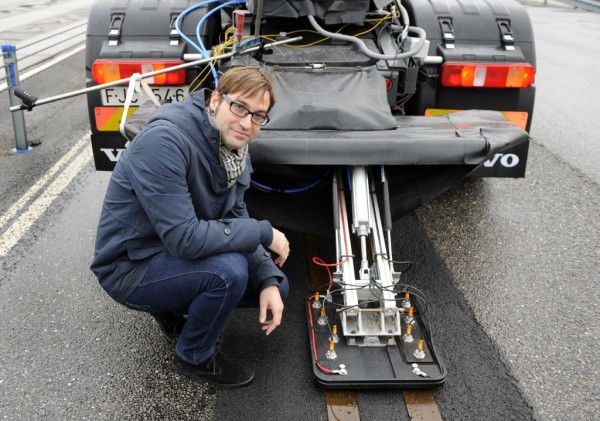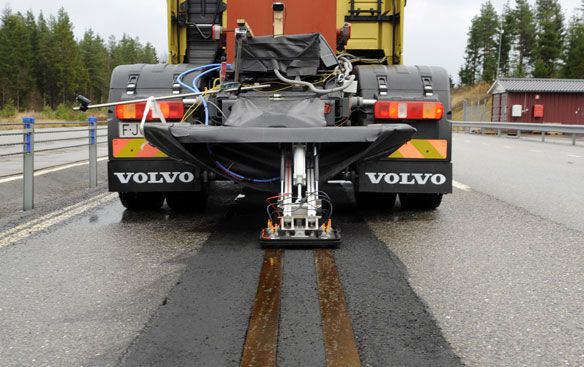Battery conundrums continue to be a major road block for electric vehicles. They’re big, heavy, limit range, and although there’s less pollution coming out of an EV’s tailpipe, charging that monster battery still utilizes fossil fuels. While many firms are focused on solving these battery problems, Volvo Group is taking a different approach: get rid of the battery all together.
The company envisions a future where electric trucks and buses harvest power from lines built directly into the surface of the road, rather than a bulky on-board battery. Although we’ve seen this concept before, Volvo has already gone beyond talk and is actively testing it at a 400-meter long track at its testing facility in Hällered outside Gothenburg.

In many cities that employ EVs for public transportation, buses or other vehicles are equipped with inductive wireless charging technology. Every time they pull into a designated stop, the battery gets a quick boost of power, ensuring the vehicle can continue on its way without risk of dying. While this works just fine for city buses or taxis, it’s not ideal for vehicles that must travel long distances.
“They stop infrequently and to cope with this task they would need so many batteries that there would be no room for any loads or passengers,” explains Volvo in a statement. “A solution is required where power is continuously supplied to the truck from an external source.”
That source, according to Volvo and its collaborators from the Swedish Transport Administration, Vattenfall, and the EV industry, is the road itself.

At its test track, Volvo has built two power lines into the surface of the road. A current collector in contact with the power lines is located on the truck. “We are currently testing how to connect the electricity from the road to the truck. The electricity flows into a water-cooled heating element, with similar power requirement as an electricity-driven truck,” says Richard Sebestyen, who is the project manager at Volvo Group Trucks Technology, in a statement.
Although initial results are promising, many years remain before electric roads move out of the experimental phase. The delay may actually be a blessing in disguise, however. Perhaps by the time the current collector, electric motor and control systems are perfected, most of the electricity running through the grid will come from renewable sources rather than fossil fuels.